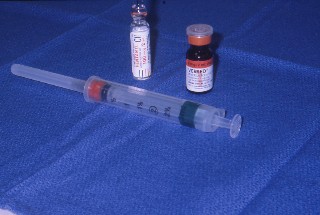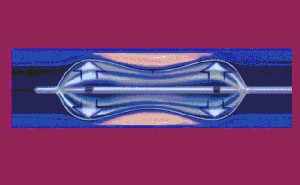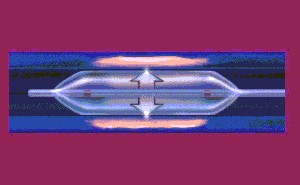
Frequently Asked Questions
I am a patient, where do I get some basic information regarding dialysis access?
We are a dialysis access consulting company and do not provide patient advice. But if you search the web, at Vascular Web provided by Society for Vascular Surgery, there is some basic information that you can scan. NIDDK also has some information in this regard. This list is by no means meant to be complete and is simply a guide of somewhere to start.
The Dialysis Access Center: A Ready-To-Run Interventional Nephrology Facility
We offer the leadership needed to establish your own local access center, one that may transition to the Ambulatory Surgery Center (ASC) model when CMS permits these services to be performed in an ASC. This includes the training for the Medical Director and specialized allied health professionals. You will receive a policy and procedure manual, the information management software and organizational design guidelines. You will also receive assistance with billing administration.
The Interventional Nephrologist: An idea whose time has come.
As a Nephrologist, you care for some of the most critically ill patients. You are already familiar with the attention to detail and arduous process of caring for ESRD patients. You perform minimally invasive procedures, treat complex medical illnesses and supervise dialysis therapies. Extending your responsibility to vascular access care, adapting your skills to Interventional Nephrology and starting your own local access care center- are all well within your realm of experience and expertise. In fact, the Interventional Nephrologist is uniquely positioned to understand the needs of both referring nephrologists and patients when dealing with dysfunctional access care.
As an Interventional Nephrologist, you will reduce patient trauma while utilizing less expensive outpatient services. You will perform minimally invasive procedures that can declot the thrombosed dialysis access, perform venograms and angioplasties on the dysfunctional access under conscious sedation, and, when needed, place a cuffed catheter for dialysis access.

As an adjunct to the vascular surgeon, you will provide dialysis access care that is far superior to that formerly regarded as standard of care in the nephrology community. You will extend your effectiveness as the physician responsible for a very crucial part of the dialysis patient's care.
How do I get started? The time to act is now.
To further discuss and find out how DAC, Inc can enhance your practice, please E-mail or call Dr. Khakmahd, Medical Director at (510) 251-1002.
See information regarding the training program. Please E-mail or call Dr. Khakmahd, Medical Director at (510) 251-1002.
What is the DAC's Comprehensive Training Program?
Our comprehensive training program, taught by recognized pioneers in dialysis access care, trains you and your staff to operate your own local access care center. We are a recognized center of excellence in dialysis access with experience in more than 14,000 cases over the last nine years.


You and your staff will undergo a comprehensive training with hands-on patient care, including a minimum of 100 cases, including conscious sedation, thrombolysis, venogram, angioplasty, and cuffed catheter placement, at least half of which will involve you as the primary operator. You will also learn data evaluation, management of information systems, and a unique quality assurance program that emphasizes outcome monitoring, procedural complications and physician data analysis.
What are the prerequisites of the training at the DAC?
Have a signed agreement with DAC, Inc. Board certified in Internal Medicine and Nephrology. A valid California medical license. A California permit and license as an X-ray supervisor and operator. Level IV Privileges at your own hospital. Cannulation of at least twenty functioning accesses prior to initiation of the program is recommended. Study material for X-ray supervisor and operator permit exam is available here and here.
How do I apply for Fluoroscopy supervisor and operator permit in California?
You can go to Radiologic Health Branch section of Department of Health services for state of California, and download the application form DHS 8230. Fill this out and check the box Fluoroscopy Supervisor and Operator Permit.
Include with this application:
Your nonrefundable $85.00 application fee payment in the form of a check or money order made payable to "CDHS-RHB" (California Department of Health Services – Radiologic Health Branch)
A separate payment for testing fees in the amount of $250 for one permit examination in the form of a cashier’s check or money order, payable to the "American Registry of Radiologic Technologists." (Personal checks will not be accepted.)
Evidence that you have one of the following valid California healing arts licenses: Physician and Surgeon, Osteopathic Physician and Surgeon.
Return this form along with payments and a copy of your California healing arts licenses to:
Billing and Cashiering Unit California Department of Health Services
Radiologic Health Branch, MS 7610, P.O. Box 997414, Sacramento, CA 95899-7414
Download the study syllabus on Radiography Radiation Protection, as well as Fluoroscopy Radiation protection, and study their contents. Take the test at a Pearson Vue test center..
Revenue enhancement for your practice.
Starting your own local outpatient access care center allows you to earn revenues for interventional procedures that were previously performed in an inpatient setting.
Improving the quality of patient care.
A dedicated DAC eliminates the need for patients to leave the care of a nephrologist in search of an interventional radiologist or vascular surgeon. Gone are the "musical chairs" required to schedule patients around a specialist's or hospital's calendar, the problem that frustrates both the nephrologist and the patient. Unlike the services provided by an interventional radiologist or a surgeon, the key advantage of a local access care center is its sole dedication to dialysis access care, by nephrologists. Often times same day services, including access care and dialysis, avoids long and unnecessary delays. Patients enjoy rapid delivery of care.
Nephrology Fellows interested in training at the DAC and Interventional Nephrology
We no longer provide training of Nephrology Fellows at the Dialysis Access Center. Training is exclusively provided to groups with a negotiated contract. Please visit ASDIN website for possible alternative training programs.